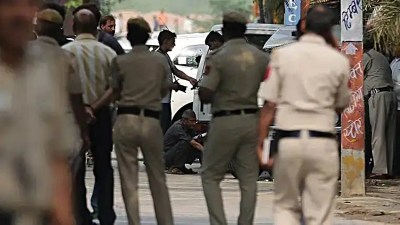Maneka proposes changes in Juvenile Justice Act
NEW DELHI, JUNE 28: The Ministry of Social Justice and Empowerment is proposing to amend the Juvenile Justice (JJ) Act, 1986, to make it m...

NEW DELHI, JUNE 28: The Ministry of Social Justice and Empowerment is proposing to amend the Juvenile Justice (JJ) Act, 1986, to make it more child-friendly and conform it to the United Nations convention of the rights of the child.
Maneka Gandhi, Minister of State for Social Justice and Empowerment, today said the amendment proposed will ensure that the Act is in the best interest of the child.
She said the National Institute of Social Defence (NISD) has systematised training and development modules for training of functionaries of the juvenile justice system — ranging from the police to the Welfare Department — to sensitise them to the best interests of children rather than “the best interest of themselves”.
Gandhi said the existing JJ Act does not provide for rehabilitation and aftercare of the child nor does it have a foster-care programme. “We want that the neglected child should be treated better by various agencies, including the police,” she said.
Gandhi said protection of the child could be ensured through a concerted programme involving all segments of the society. “First, we have to change our attitude towards them,” she said.
Terming child rights and child protection her Ministry’s priority, Gandhi said children — especially those on the streets earning a living — should have greater access to healthcare, education and justice. She said her Ministry is working in cooperation with NGOs to bring about whatever little difference possible. Through its Street Children Programme, the Ministry has reached out to more than one lakh children in 39 cities and is funding over 191 NGOs working with children without homes.
Another programme — Childline — has responded to 2,80,000 calls for medical attention, shelter, protection from abuse, repatriation, and calls related to death of children on the street. Childline is operational is 14 cities, Gandhi said.
The Minister said the programme is facing problems due to lack of timely assistance from the police. “Abused children, who have been turned away by their employers often cannot be rehabilitated because of such delays,” she said.



- 01
- 02
- 03
- 04
- 05




























